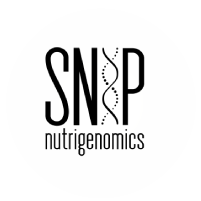What is pain?
Most people think of pain as a physical sensation, but it’s much more than that.
Pain is complex and hugely influenced by our genetics, epigenetics, and environment.
Our genes are the blueprints for who we are. When it comes to pain specifically, some individuals may be born with genetic markers that make them more susceptible to experiencing pain or having it last longer than expected.
Conversely, some individuals may have genetic markers that make them less likely to feel pain or have a higher pain threshold.
Epigenetics is like the ‘software’ of our genes and tells our cells how to act. This can be influenced by external factors such as stress, environment, diet, etc., and can even alter our genes so that they either become more sensitive or less sensitive to pain.
Pain is unique to everyone, and understanding the influence of genetics and epigenetics can help us better manage it. Our personal experiences, family history, genetic predispositions, and other factors all play a role in how we experience pain differently.
While we may never fully understand why some individuals experience more or less pain than others, understanding the various genetic and epigenetic influences can help us better manage our own unique pain and find ways to cope. By improving our understanding of these factors, we can develop better approaches that consider our individual needs.
That’s something worth fighting for!
By understanding the various influences on our pain, we can begin to manage it more effectively. It’s time to take control of our unique pain – let’s start by better understanding how genetics and epigenetics shape our individual experiences.
What is the connection between the gut and pain?
The link between the gut and pain may not be immediately apparent, but there’s a strong connection!
Emerging evidence suggests that an individual’s genetic makeup and environment can affect how they experience pain. Let’s begin by looking at some genes directly responsible for gut health.
FUT2 directly affects our microbiome along with FTO. These SNP’s affect how your body feeds the good bugs in your gut, which affect your ability to break down and absorb foods. These functions are critical to the repair and maintenance of all tissues in our body, directly affecting pain in the body.
Your gut bugs are half the story for the gut-brain connection, directly impacting your mood and cognition, which is tied to how you perceive pain and your motivation to follow the lifestyle requirements to alter pain. It also connects to inflammation of the gut.
Methylation directly affects inflammation making it critical to know how your MTHFR and MTRR genes work. Did you know eating fortified foods (packaged foods) can reduce the body’s ability to effectively methylate due to alteration in folate absorption? And when methylation is supported, so is a healthy inflammatory response, thus decreasing inflammation-related pain.
Epigenetic factors for gut health
This is where epigenetics comes in: the study of gene expression changes that occur without altering the underlying DNA sequence.
Epigenetic modifications are one way in which the gut can influence pain. Sometimes, these modifications can change how our bodies interact with pain and how we respond to treatments. An example is opioids: epigenetic changes within the digestive system can alter opioid metabolism, leading to an increased risk of opioid tolerance and addiction.
The same type of epigenetic modification has been found to affect inflammation-related pain. Inflammatory processes in the digestive system can increase the risk of chronic pain due to epigenetic changes that alter inflammatory responses and keep them at heightened levels. Did you know sugar is a universal inflammatory food? Alcohol, beyond being a toxin, is also inflammatory to the gut.
And speaking of sugar… Did you know your FTO gene can affect your sense of being hungry or satisfied? Also, mutations in these genes have been shown to lead to cravings for sugary, high carbohydrate and fat foods, coupled with a propensity to overeat due to not feeling satisfied can lead to increased body mass index and an altered pain response. Knowing your genetic strengths and weaknesses allows you to focus on supporting them to function at peak capacity.
The gut-brain connection is real – and if our environment and genetics contribute to how we experience pain, it’s worth considering how our diets might affect us as well. Eating a balanced diet, avoiding inflammatory foods, and getting enough exercise can all help maintain healthy gut bacteria – which in turn can support the reduction of pain.
Ultimately, the gut and pain relationship is complex and far from fully understood. But it’s an area of research that could have important implications for improving our understanding of chronic pain.
What do mitochondria have to do with pain?
Our mitochondria, or the “powerhouse” of our cells as they’re sometimes called, can significantly influence how we experience pain. Research has shown that mitochondrial health is essential in determining how our bodies respond to and process pain sensations.
Inherited genetic mutations in mitochondrial genes like ATP5C1 and NQO1 can lead to impaired cellular functioning, manifesting in the form of chronic pain. Additionally, mutations in mitochondrial DNA can lead to altered epigenetic profiles. Epigenetics is critical in how our cells respond to and process external stimuli, including pain signals.
Overall, healthy mitochondria seem essential for our bodies to properly process pain signals and experience them appropriately. If you’re struggling with pain, it may be worth examining whether your mitochondria play a role. By understanding this connection better, we can potentially develop more effective treatments for managing and alleviating chronic pain.
How does stress affect pain?
While genetics certainly plays a role in how pain is experienced, epigenetics can also influence this. Epigenetics is the study of changes to gene expression caused by environmental factors such as stress and trauma. For instance, studies have found that people exposed to chronic stress have higher levels of inflammatory cytokines, which can increase the pain an individual feels.
Additionally, certain hormones produced during times of stress can interfere with the body’s ability to cope with signals, making them more intense and challenging to manage.
Stress can cause changes in gene expression that make you more sensitive to pain. (COMT is an enzyme responsible for clearing stress hormones like epinephrine and cortisol, which elevate with the experience of stress.) It’s thought that this occurs by activating a network of proteins known as histone deacetylases (HDACs), which reduce the activity of specific genes related to pain and inflammation.
The result is that your body becomes more prone to experiencing pain, even in situations where there’s no known physical cause.
So, while it may not be the only factor at play, stress can certainly impact how much pain you experience. If chronic pain has been a persistent issue, take the time to assess and manage any stress sources contributing to the problem. It may be an essential step in finding relief.
How does trauma affect pain?
While genetics may predispose some people to experience pain, our environment—including traumatic events—can also play a significant role in how pain is manifested. Research has shown that physically and psychologically traumatic experiences can alter how our bodies respond to pain signals.
The effects of trauma on pain can be profound. It’s important to be aware of this when considering how we approach managing and treating chronic pain conditions. With the proper support, people can learn healthy ways to cope with their pain that don’t involve relying solely on medications.
For instance, mindfulness-based therapies have been found to be effective in managing chronic pain. Other lifestyle changes such as exercise, nutrition, good sleep hygiene, and journaling can also support relief.
By incorporating these practices into our lives, we can work towards a better understanding and management of pain—regardless of its origin.
Finding (natural) relief
By understanding the connection between genetics, epigenetics (including stress and trauma), and pain, we can better equip ourselves to find solutions for managing our pain.
Knowing that environmental factors can affect how much pain we experience may help us gain control over our condition as we seek ways to cope and find relief.
But where to turn when hurt has already taken hold?
Host Scott Rewick and Filmmaker Jason Coates hope their new docuseries, Strange Pain, will shed light on highlighting diverse natural approaches to pain.
Their mission in making the series is to teach people about breakthrough pain treatments and the most powerful tools available today to help prevent and conquer chronic pain.
From addressing inflammation to underground remedies, these methodologies include ancient techniques, high-tech solutions and everything in between.
The Strange Pain docuseries is the perfect culmination of expert knowledge, applied science, and years of healing experience, all compiled into fun, easy-to-watch episodes.
By taking advice from over sixty brilliant and talented health professionals, including SNiP’s founder and CEO, Kim Ressler, and Andi Rainville, SNiP’s Scientific Advisor, Strange Pain provides critical information needed to help demystify and conquer pain conditions.
Broken into 9 episodes, the series focuses on several themes that mentor viewers in understanding and addressing their pain beyond a traditional allopathic perspective.
You can learn more about how to access Strange Pain here.
For further resources on understanding and managing pain, visit the National Institute of Health.
Get to the root of you. Order your DNA test today.


